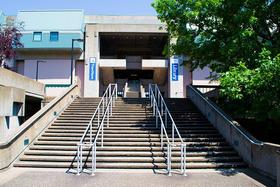Should Graduating Seniors Consider a Gap Year?
The spread of coronavirus disease (nicknamed COVID-19) has thrown a wrench into the 2019-2020 school year for many students. As schools scramble to implement online leThe Gap Year Associationarning programs amid statewide school closures, graduating high school seniors wonder whether their undergrad plans will be affected.
According to a national survey conducted by the Art & Science Group, a higher-education consulting firm, one out of six high school seniors surveyed are rethinking their decision to enroll full-time in a bachelor’s degree program in the fall. Many plan to enroll part-time in a program, but an equal number are considering an alternative plan: taking a gap year.
In this article, we’ll explore the subject of the gap year to learn what it is and what benefits taking a gap year can provide to students. We’ll also talk about helpful tips for planning a gap year and steps to take when applying to college after a gap year.
What is a Gap Year?
The year-long break between high school graduation and the start of post-secondary education (or full-time employment) is known as the “gap year” and has become increasingly popular. The current health crisis sweeping the nation has already impacted the U.S. education system, and we may see an increase in graduating seniors taking gap years as an alternative to post-secondary education.
The concept of the gap year has been around since the 1980s, but one of the most famous pieces written about it is attributed to William Fitzsimmons, former Dean of Admissions at Harvard. Entitled “Time Out or Burn Out for the Next Generation,” this piece extrapolates on the potential benefits of taking a year off before pursuing higher education.
Fitzsimmons writes, “Perhaps the best way of all to get the full of benefit of a time off is to postpone entrance to college for a year. Harvard has recommended this option for more than four decades, indeed proposing it in the letter of admission.”
Though the concept of a gap year is fairly general, many students enroll in gap year programs. The Gap Year Association offers a comprehensive list of accredited and unaccredited programs to help students make the most of their gap year experience. This organization also offers families a guide for planning a gap year, including tips for learning risk management skills, budgeting, communication, travel, and more.
This video looks at the benefits and myths of a gap year.
The Benefits of Taking a Gap Year
By the time a student graduates high school, he will have spent the better part of the previous twelve to thirteen years in a full-time school program. Moving straight into a higher level of education, paired with the challenge of moving away from home and transitioning into adulthood, can be a stressful time. Many college students become overwhelmed by the changes and burn out within their first year.
The gap year gives students time off from school, allowing them to experience the world and acquire new skills before starting the next phase of their life.
Here are some of the other benefits of taking a gap year:
- It gives you time to think about your life and your future outside the context of school – it’s an opportunity to see the bigger picture, and it may change your perspective on things.
- Spending a year working, volunteering, or traveling can be a great way to earn experience and expand your worldview in ways that could boost your resume, not just your college applications.
- Taking a gap year may lead to higher career satisfaction due to lower burnout rates, improved job prospects, and a clearer sense of purpose during college.
- Many gap-year graduates have higher GPAs than non-gap-year students – the experience may increase motivation and focus once the student returns to school.
- It allows you to experience something new and challenge yourself – school has become incredibly familiar by now, and a gap year may push you out of your comfort zone.
- Taking a gap year to work could help you earn money to put toward your future college education – an internship may also boost your application or help you get a job after college.
- There’s never an easier time to take a year off than right after high school – once you start working full-time, you’ll be lucky to get a few weeks off a year, let alone an entire year.
- It allows you to test the path you’ve envisioned for yourself to see if it’s what you really want – if you find out you don’t like it, you still have time to change your career path.
Though taking a gap year has many potential benefits, there are some downsides and practical aspects to consider as well. It depends on how you spend your gap year.
Students who take a year to work before attending college may have the opportunity to save for their education. On the other hand, a gap year spent traveling can become very expensive very quickly. Taking a gap year to travel also delays your earning potential by a year, and waiting may affect your family’s ability to contribute to your educational expenses.
Deferring your college acceptance may require additional paperwork, and not all colleges allow deferment – you may need to wait to apply until the year after you graduate. All of these reasons and more highlight the importance of proper planning for a gap year.
This TEDx Youth Talk discusses why everybody should take a gap year.
Tips for Planning a Gap Year
Every gap year is different, but it’s important to enter into it with goals and at least some degree of planning. Even if you don’t plan your entire year down to the last detail, you should have some direction in mind and a goal for the end of the year. If you still plan to attend college after your gap year, the experience should boost your application and further your education and potential career.
Here are some things to consider when planning your gap year:
- Consider your options carefully. Even if you’re pretty sure you’ll take a gap year, applying to college during your senior year is still a good idea. This ensures that you can take advantage of the resources your high school offers and have a backup plan if things change.
- Talk to your schools about a gap year. Many colleges encourage students to take a gap year, but you must still talk to the admissions office. You’ll want to find out if the school allows deferment or if you’ll need to wait until the end of the year to apply.
- Find out what your school requires. If a school has accepted you and they’ve approved your gap year, you may still be required to put down a tuition deposit to secure your spot. Your school may also ask you to check in throughout the year, so make sure you understand the requirements that come with deferment.
- Do your research on gap year programs. You don’t necessarily need a structured gap year program, but it’s a good opportunity to consider. Make sure you do your research to find the best program that suits your interests and learn everything you can about the program leaders and support services available.
- Ask a lot of questions. When researching and applying to gap year programs, be proactive and ask many questions. The more information you have, the easier it will be for you to make the right decision. If it’s a program you have to apply for, asking questions will show your interest.
- Make the necessary preparations. By the time graduation day rolls around, you’ll be able to breathe a sigh of relief, but you may not have a lot of downtime before your gap year program begins. Ensure you have all the details in place so you’re ready to hit the ground running with your program.
There’s no list of lessons you must learn during a gap year or things you must experience. The experience will be entirely your own; you can decide what you get from it. Proper planning ensures that you’ll be able to make the most of your gap year, but once it ends, you should think about how you’ll transition back into life as a student.
How to Transition Back into School
If you take a gap year for the right reasons, you shouldn’t find it too difficult to return to the school mindset. Half the purpose of taking a gap year is to give yourself a mental break so you can enter college refreshed and ready for the challenges ahead. That being said, there are still some things you should do to make sure you transition smoothly back into life as a student.
Here are some tips for transitioning back into school after a gap year:
- Set goals for your gap year as a step on the path toward your future career – understand that college is another step on that path, but they all get you closer to your end goal.
- Don’t think of your gap year as a break – if you think of it as a year spent sleeping in and hanging out with friends, it’ll be harder to return to school afterward.
- Enroll in a program that will give you some direction and motivation – setting off without a plan may turn your gap year into more of a vacation than a learning experience you can move forward.
- Register for things as early as you can – even if you’re still in your gap year, you need to stay up to date with your college plan, registering for housing and classes as soon as possible.
- Reflect on your experiences and bring them with you as you enter college – taking a gap year is a great opportunity to learn and grow; the journey shouldn’t stop when you return to school.
Going to college can be a stressful experience, but if you’ve taken a gap year to learn and develop yourself as a person, you may find yourself more ready for the challenge. It’s important to stay on track with your plan throughout the year so you can really get as much out of the experience as possible. If you’re unsure what the plan is for your future, however, you may not even have an end date in mind. Just know that waiting to apply for college until you’ve completed your gap year might mean waiting an additional semester (or an entire year) to start school.
Applying to College After Taking a Gap Year
There’s no rule that says you have to go to college. Many high school students are moving straight into full-time employment or attending trade school to further their careers. If you’re unsure what you want for your future, taking a gap year could help you gain the knowledge and experience you need to make that decision. If you decide to go to college after all, there are certain things you’ll need to do to put together a compelling application.
Here are some tips for applying to college after a gap year:
- Keep track of college requirements and application deadlines during your gap year. Plan to start working on your application at least 3 months before the deadline if you want to avoid putting things off for another year.
- Study for standardized tests to get the highest score possible. If you wait a year to attend college, you may need to retake the SAT – talk to the schools you’re applying to and set aside time to study each week so you don’t have to cram it all in at the end.
- Gather your recommendation letters before you graduate. It can be tough to find a teacher to write a compelling letter of recommendation for you a year after you’ve graduated, so create a Common Application account now and have your teachers submit their letters so they’ll be there when you need them.
- Ask your gap year leaders for recommendations. If you’ve decided to take a gap year, your college will want to hear about it – ask your gap year leaders or employers for a letter of recommendation highlighting the skills and experience you’ve acquired.
- Talk to your counselor before you leave. Any college you apply to will need your high school transcripts, but it can be tricky to get them after you leave. Talk to your high school counselor about your gap year plans to make sure your transcripts are accessible when you need them.
- Do the optional essay with your application. Many colleges offer an optional essay to students who have completed a gap year – take the opportunity to explain your decision and what you’ve learned from it. You may even want to write the outline for this essay before you start the year so you can check in on your goals throughout the process.
The experience and skills you gain during a gap year can change your life, and you want your prospective college to know that it’s a good thing. Mention your gap year in your essay and talk about your experiences during college interviews. It’s a great way to set yourself apart from other applicants.
Gap Year Programs to Consider
You don’t necessarily need to enroll in a structured gap year program, but it’s a great opportunity to explore something new with little guidance. Programs exist for everything from travel and self-discovery to service and work experience.
Here are some examples of gap year programs:
- Art History Abroad – This program allows students to study art, architecture, and European culture through carefully structured courses in Italy, France, and London. Programs are available for a whole semester in the fall or shorter durations in the spring and summer.
- Rustic Pathways – Visit three to five different countries over the course of a semester, experiencing cultural immersion, community service, and travel. These programs travel to Latin America, Southeast Asia, Eastern Africa, and the South Pacific for three-month programs or shorter.
- The Leap – These programs include a mixture of overland service and adventure, challenging and motivating students as they travel around the world. The Leap also offers career-focused law, medicine, and business internships.
- Oyster Worldwide – Choose from programs lasting 8 to 52 weeks covering a variety of options, including animal welfare, conservation, teaching, and even sports coaching. These programs support positive contributions to local communities around the world.
- Coral Cay Conservation – Hosted by an internationally renowned conservation specialist, this program operates many marine and terrestrial conservation projects. The mission is to provide resources to help sustain livelihoods and alleviate poverty by protecting coral reefs and associated ecosystems.
Taking a gap year could be the perfect solution if you're feeling burnt out by school. In these times of uncertainty, it doesn’t hurt to explore your options and think carefully before making a decision that will impact the rest of your life. If you’re considering a gap year after graduating high school, talk to your parents, teachers, and guidance counselor to find the best option for you.
Questions? Contact us on Facebook and Instagram. @communitycollegereview
#communitycollege #gapyear












